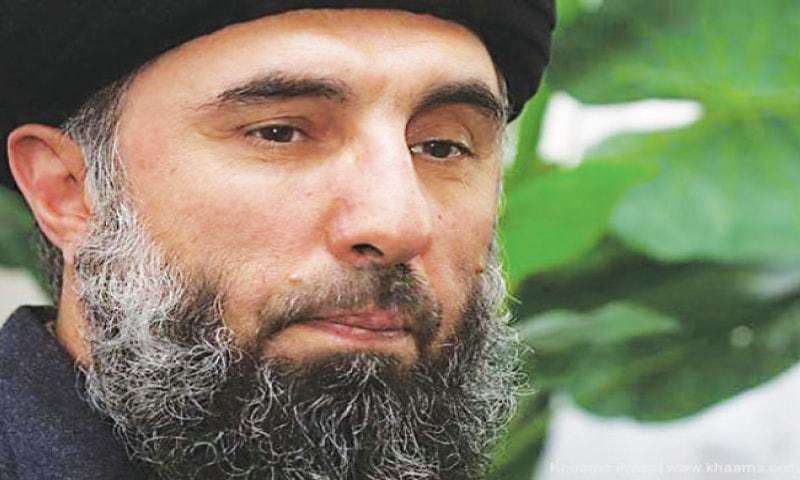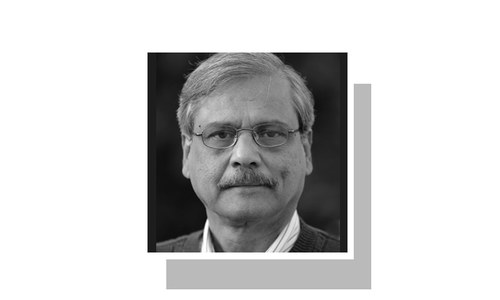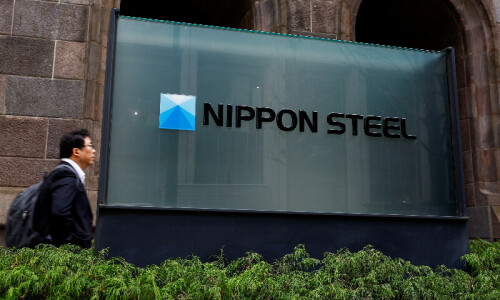PESHAWAR: Abdur Rab Rasul Sayyaf, the septuagenarian former Afghan mujahideen leader and current member of the Afghan parliament, once described his Soviet-jihad era fellow resistance leader, Gulbadin Hekmatyar, as someone “whose boots are in Pakistan, while the rest of him is in his native Afghanistan”.
This sums up the life and predicament of the Hizb-i-Islami leader, who has lived nearly 36 years of his 69 years either fighting as a leader of a party that once was the darling of Pakistan’s security establishment, enjoying full hospitality; later that of the Iranians after a rout of his last bastion to the east of Kabul in a Taliban onslaught; and still later either hiding in eastern Kunar or, as western media believe, in Peshawar.
It would thus be Mr Hekmatyar’s second overt homecoming to Kabul provided the government of President Ashraf Ghani signs a peace agreement with the former mujahideen leader. The agreement has been in the works since Hamid Karzai’s term in the presidential palace.
The first homecoming was in 1993-94 after he was named as prime minister of a coalition of mujahideen groups, led by his arch rival, the late Tajik mujahideen leader, Ahmad Shah Massoud. Mr Hekmatyar stayed clear of Kabul, sitting largely to its east, firing rockets and artillery into the capital.
A little over two decades later, the scene has not changed much, politically that is. With Ashraf Ghani holding the reins of power in a coalition that has little to do with the Afghan constitution and more with the present-day reality in Afghanistan, the power base remains in the hands of the same Dari-speaking elite.
This is true militarily too — a fact noted by Scottish historian and writer William Dalrymple in an essay, “A deadly triangle: Afghanistan, Pakistan & India”, “although the Tajiks, who constitute only 27 per cent of the Afghan population, still make up 70 per cent of the officers in the Afghan army”.
So what would a peace agreement, if it comes to fruition, mean for Mr Hekmatyar? For one, it would enable the reclusive Hizb leader to come out from his decades-old hiding and pursue a political career. If he does so, he would be following in the footsteps of other mujahideen leaders, for instance Rasul Sayyaf, Sibghatullah Mujaddedi and Pir Syed Ahmad Gilani.
In return, according to a draft agreement, Mr Hekmatyar would get immunity in “all past political and military proceedings”. The draft also obliges the Afghan government to work towards removing Mr Hekmatyar’s name from the US-designated list of global terrorists and UN blacklist.
This would grant the former mujahideen leader freedom of movement, allow him to join mainstream politics and resurrect and reorganise his fractious political base in parts of Afghanistan. This would be of much value to his party, which over the decades has split into several factions, and enable it to become a viable — and possibly the only organised political force — in that country.
If he decides to join the mainstream, it would help reunite the Hizb’s various factions, almost all of whom now enjoy political perks and privileges in Kabul.
Humayun Jarir, his son-in-law, his deputy Qutbuddin Hilal and close aides Juma Khan Hamdard, Maulavi Sarfaraz, Khalid Farooqi, Engr. Wahidullah Sabawoon and Farooq Wardak are all part of the current Afghan dispensation.
In fact, Hizb-i-Islami is a registered party in Afghanistan under the leadership of Abdul Hadi Arghandiwal, one of Mr Hekmatyar’s former deputies. It has 35 representatives in the Afghan parliament.
Haji Ahmad Khan, the deputy to CEO Abdullah Abdullah, is also from Mr Hekmatyar’s Hizb-i-Islami. Qazi Amin Waqad, another of Mr Hekmatyar’s former deputies and a respected Hizb leader, is a member of the Afghan High Peace Council. Like his mentor, Waqad has spent the better part of his life in Peshawar.
With most of his Hizb now a part of the current Afghan political structure, it was but natural for his family in Peshawar — his sons and his other son-in-law Dr Ghairat Baheer — to press home the point that it was time for the 70-year-old hardline leader to give up his outdated militaristic dream and play a more pragmatic role in Afghanistan.
After Kashmir Khan’s death in a hospital in Peshawar in July, Hekmatyar was hardly left with any of his former prominent field commanders in Afghanistan. Most of his foot soldiers have since switched sides and joined the Afghan Taliban anyway.
Opposition and obstacles
There are many who either do not see any point in Mr Hekmatyar’s support for the peace process in Afghanistan or foresee many obstacles in the way of his mainstreaming. His characteristic stubbornness and volatility are believed to be the prime roadblocks in the way of his political role.
Opposition from the likes of Abdullah Abdullah, the chief executive, can effectively torpedo any attempt by President Ghani to rectify the political balance in Afghanistan.
Rustam Shah Mohmand, a former ambassador to Afghanistan, feels Hekmatyar’s entry “will make zero difference”.
“Hekmatyar is irrelevant in the present scheme of things in Afghanistan,” he said.
For him, the Taliban, and not Gulbadin Hekmatyar, hold the balance in Afghanistan.
There are sceptics who believe that attempts by President Ghani, a Kharoti Pakhtun, to try and rope in another Kharoti (Mr Hekmatyar) as a counterweight to the Taliban and in a replay of the age-old game of Pakhtun-vs-Pakhtun or to offset the Tajik-Uzbek domination in Kabul’s politics, is unlikely to work.
“This will create more fissures in Afghanistan,” warns Mr Khalid Aziz, head of the Regional Institute of Policy and Research (Riport) — a registered non-profit organisation based in Peshawar.
But while Hekmatyar’s supporters acknowledge that the Hizb is no longer a potent insurgency factor in Afghanistan, they continue to pin hopes, and rely, on his support base across Afghanistan. Indeed, they hold up Mr Hekmatyar as a potential unifying figure.
They base their optimism on his influence amongst non-Pakhtuns in northern Afghanistan. Hekmatyar hails from Imam Sahib, a town in the northern Kunduz province.
They think he can still manage to swing votes, pointing to the large Hizb presence in parliament.
However, for the beleaguered Afghan president, the prospect of Mr Hekmatyar’s participation in the peace process may not mean much other than to shore up his sagging political credentials as a peacemaker. It may also afford him a leeway to use the draft agreement as a framework to engage with other militant factions.
As for Pakistan, observers say, it would be better to stay out of an evolving situation. Despite having treated Mr Hekmatyar as their darling in the heyday of the Afghan war, Pakistan swiftly changed gears and abandoned its blue-eyed boy to support the Taliban in their onslaught on Kabul. That ensured the rout of the Hizb-i-Islami in Afghanistan.
Pakistan didn’t stop here. Mr Hekmatyar’s other son-in-law, Dr Ghairat Baheer, was bundled up on America’s prodding and shipped to the Bagram airbase to spend four years in custody. He was released only upon then president Hamid Karzai’s intervention to kick-start mediation with the Hizb leader. Hekmatyar’s brother, Mr Shahabuddin, too was picked up and detained.
But as Mr Sayyaf once cryptically commented, the Hizb leader’s ‘boots’ are in Pakistan — family, possibly he himself, and a larger following camped at the Shamshatu refugee camp, just outside Peshawar.
Analysts warn that instead of throwing a monkey wrench into the process or prodding this or that faction to join or not join, Pakistan should let, indeed encourage, the peace process. “We have no business to serve as interlocutors,” Mr Khalid Aziz concluded.
Published in Dawn September 17th, 2016















































